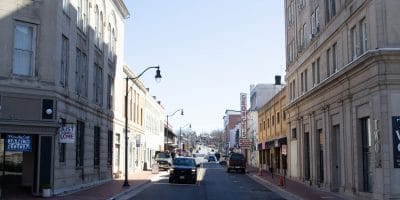By Liesl Graber, contributor
Community volunteers and city staff who are part of a key environmental committee will present their Environmental Action Plan to city council Tuesday, which the group says will serve as a blueprint for ways Harrisonburg can help save energy, money and the planet.
As part of the unveiling of the Environmental Performance Standards Advisory Committee‘s plan, the group will make three key requests to council at the 7 p.m. meeting at city hall:
- Creating by 2020 a “sustainability coordinator,” a new city position that would support in an advisory capacity the implementation of sustainability programs in Harrisonburg.
- Endorsing the full action plan in principle.
- And within six months, finalizing a timeline to implement all of the recommendations in the Environmental Action Plan.
“Tuesday is the moment when we ask the City Council for its blessing,” said Doug Hendren, vice chairman of the Environmental Performance Standards Advisory Committee.
The action plan includes suggestions for seven areas that affect environment in and around Harrisonburg: waste reduction and recycling, regional food systems, land use, water quality, transportation, renewable energy use and energy efficiency of city buildings. (Download the Executive Summary of the report.)
As part of that effort to encourage the council to act, committee members are urging residents to turn out to Tuesday’s council meeting.
“Community support is crucial on Tuesday,” EPSAC chairwoman Deirdre Smeltzer agreed.
She said a strong presence at Tuesday’s meeting would demonstrate to the council the community’s support for committee’s goals.
“It will take support from outside the committee to convince our leaders that they have broad community support for these principles,” she said. “Our collective future depends on it.”
Seeking community support
Everett Brubaker, graduate intern with Vine and Fig, created a public Facebook event to spread word of Tuesday’s meeting. At the meeting, he will pass out bright yellow stickers so those attending can show their support.
Brubaker said Harrisonburg can be a major driver of change.
“With near a dozen other Virginia cities with similar plans on the books, it’s time for Harrisonburg to step up and set some targets to ensure we can continue into the future as a safe, clean, resilient, economically innovative, and healthy city,” he said.
After all, Smeltzer said, “climate change impacts all of us.”
She said ambitious actions, such as what the committee is recommending, are necessary to mitigate the effects of changing climate.
Seven areas of focus
The proposals for the seven areas range from broad goals to specific targets over the next five, 10 and even 30 years.
For instance, on the efficiency standards, the group urges the city to reduce energy use and greenhouse gas emissions—such as methane, nitrous oxide, carbon dioxide and fluorinated gas—by 25 percent by 2025, according to the EAP. The committee also hopes to see an increase in consumer demand for “green” business practices in Harrisonburg as a result of improving efficiency standards across the city.
Part of this goal includes establishing incentive programs to encourage participation. Residential, industrial, and commercial building owners can all play a part, which can also improve businesses’ profits, Hendren said.
“Businesses incorporating sustainable practices should not be shy,” Hendren said. “They can help wake up the community by their example.”
In another sector, the EAP outlines goals for renewable energy use in Harrisonburg. By 2050, 100 percent of the city’s electricity should come from renewable energy, the plan recommends. It also includes pushes for unrestricted development of off-grid solar power for Harrisonburg properties. And the plan asks for city support during Harrisonburg’s move toward sustainable energy practices, so the city can transition efficiently and with economic fairness.
The EAP also outlines goals for sustainable transportation by working with existing city plans to promote walking, cycling, and public transportation in a way that is safe, accessible, efficient, and user friendly.
The city council appointed the 11-person committee in 2017, comprising volunteers and city staff. EPSAC commits to reducing negative impact on the environment at local, regional, and global levels, which they carry out mainly through gathering data and presenting recommendations to the city. Tuesday evening will bring the council’s official go-ahead, EPSAC members hope.
The city council meeting begins at 7 p.m. in the council chambers building.












